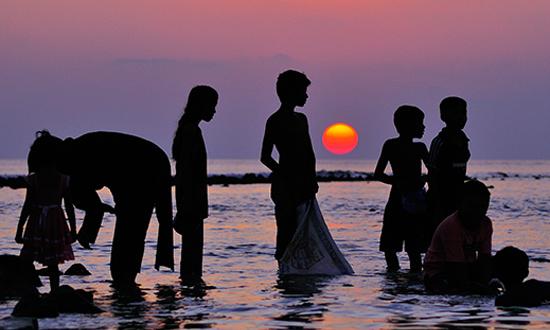
WORLD MEDIA FREEDOM DAY SEMINAR: The fate of 2700 islanders from the Carteret Islands off the north-eastern coast of Bougainville has become an icon for the future of many communities on low-lying small states globally and especially in the Pacific – the so-called "climate change refugees" or "environmental migrants".
They are a controversial casualty of the failure of developed nations to deal decisively with the global warming crisis. Iconic images of islanders leaving their ancestral homeland and relocating also resonates with earlier environmental parallels in the Pacific such as the evacuation of Rongelapese and other Marshall islanders in the wake of nuclear testing and the forced shift of Banaban islanders to Rabi in the Fiji Islands because of phosphate mining.
Despite an inspired and colourful campaign by Pacific Island delegates at the United Nations Climate Change Conference in Copenhagen in December 2009, global geopolitics stifled the outcome to the disadvantage of Oceania. This paper examines investigative and communication strategies in reporting climate change in both mainstream and alternative public spheres.
Associate Professor David Robie is director of the Pacific Media Centre. This is an adaptation of a paper he presented on environmental journalism at the recent Oceans, Islands and Skies: Oceania Conference on Creativity and Climate Change at the University of the South Pacific in Fiji. This paper is being published as part of the Oceans, Islands and Skies proceedings.
When: Tuesday, 3 May 2011
Time: 7.15-8.30pm
Where: WT1004 (AUT Tower Building, 2 Rutland St, 10th floor seminar room, next door to the new Pacific Media Centre office)
Map: www.pmc.aut.ac.nz/contact


